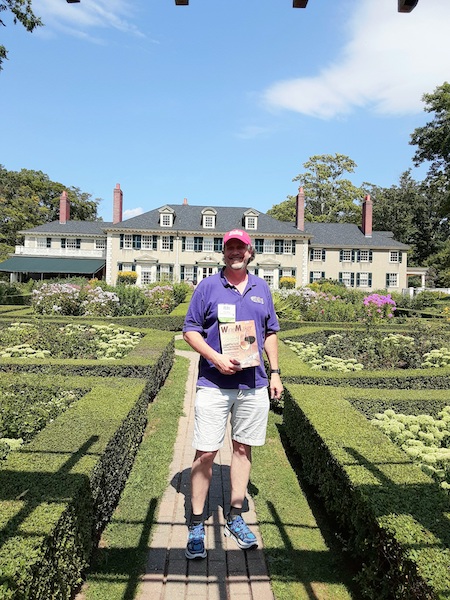“Dear Mr. Paulding,
We would like to invite you to help judge our annual International Amateur Home Wine Maker Competition in Manchester, Vermont, in August.”
With that, I became a wine judge. I have judged for beer, sake, mead and hard cider competitions a few times. I was on the Santé magazine wine and spirits reviewing panel for several years. But this was the first time I was asked to participate as a judge for a wine competition. This particular event was first scheduled for April, then May and then in July, when Covid-19 kept postponing it. So with state mandated safety protocols in place, 30 judges converged on Manchester, Vermont on Aug. 21 to judge homemade wines for three days. And during the event, the state of Vermont sent a state inspector to ensure all required safety measures were actually being followed.
Any gathering of wine professionals is always enlightening. Each comes to the event with a specific body of wine knowledge and there is never a perfect overlap of knowledge or interests. Some arrive with a writing background, some with grape growing/winemaking history, some from the sommelier field and some through wine certification programs with some letters after their names. But each comes with his fortés and interests, and conversations are always lively, fun and informative.
This particular Wine Maker Competition began in 2002 with Brad Ring, publisher of WineMaker magazine. This year, 10 panels of three judges each were to taste 2,519 entered bottles from all 50 states and six other countries. A $25 entry fee accompanied each bottle and application. Prizes were awarded for the top few entries in each category. I understand the value of a commercial wine winning awards to push sales, but these are amateur home fermenters. I asked Brad the value of awards for the home winemakers. “First, it gives the winners bragging rights maybe. But more importantly, for a small fee, it gives the winemaker an impartial juried sense of what was right and what was wrong about their wine. We encourage from our judges, in fact insist on, descriptives and wine terms, successes or failures on each technical sheet and these are all delivered back to the winemaker.”
We began judging Friday, Aug. 21, at 2:30 p.m. and went almost to 10 p.m. Saturday we started at 9 a.m. and went through to almost 10 p.m. again. Sunday we began at 9 a.m. and wrapped up by 1 p.m. That’s a lot of tasting, especially considering each wine had to be analyzed with appropriate adjectives and ratings for every entrant. Each table of three judges tasted more than 800 wines. Each judge had a page specific to each wine, with five criteria to rate — appearance, aroma/bouquet, taste, aftertaste and overall impression. A perfect score for a wine was a 20 but most fell in the 9 to 15 range. At my table, when the three of us were done with a wine, we discussed flavors and the score we each gave. If there was more than a four-point discrepancy on the 20-point scale, and sometimes there was, we had to retaste, discuss and arrive within that four-point happy place.
Some of these wines could easily be big successes on the commercial market. Many were good and adequate wines for home consumption and sharing. And a few shocked the palate commanding a “What the Heck”? Home winemakers can buy kits to add flavor to a wine naturally or synthetically, a shortcut to the desired flavor. They can add oak wooden staves, oak chips or liquid oak essence. They can add smokiness from a bottle. They can add vanilla, licorice or black pepper extract, each designed to emulate proper oak barrel cellar aging for a tiny percentage of the cost. Any of the wines that appeared synthetically manipulated for some holy grail of flavor didn’t go far with me. But those wines that appeared honest and well-made without much intervention usually ascended on the judges’ rating sheets.
The days were long and exhausting, and the tasting became a bit numbing after a while, even with “taste and spit” being the preferred and necessary approach. But over the long weekend, I met a few grape growers, a few winemakers, a writer or two and a somm or two. It was a great way to make a few new friends.
Write Doug at doug@dougpaulding.com.


